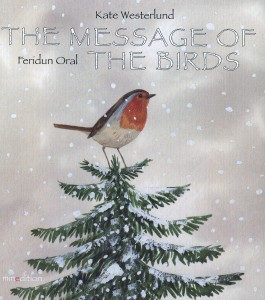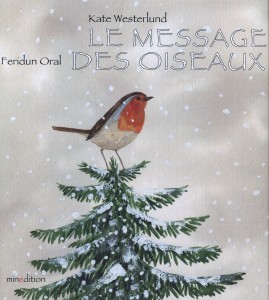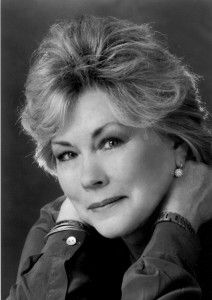1. If you didn’t write as a child, then when did you start writing and what inspired you to start?
I came to writing rather late. I did like inventing stories as a child, acting out television screenplays,(my courtroom dramas were very Perry Mason) and always enjoyed creating musical extravaganzas in my room. I was not one of those kids, however, that said, “I want to be a writer.” Actually, I remember wanting to be an ice skater, a ballerina, or a singer in musicals or opera. Once when I was grade school age, I sang the Sempre Libera, from La Traviata so loudly while in the bath that my parents came running, confusing my coloratura for cries of pain.
writer.” Actually, I remember wanting to be an ice skater, a ballerina, or a singer in musicals or opera. Once when I was grade school age, I sang the Sempre Libera, from La Traviata so loudly while in the bath that my parents came running, confusing my coloratura for cries of pain.
2. How do you choose the topics for your books?
Choosing a theme seems to come from another part of my brain. I have to do a lot of ruminating to get the story going that way. As this may be due to a lack of experience, I have started doing small writing exercises to practice working that way.
3. What’s your age range?
I have to date, only done picture books but am working on several projects for other age groups.
4. Where do you get your ideas?
I never seem to be short of ideas but taking those ideas and working them into good stories is, of course, what it is all about. I keep lists. I have a list of first lines, last lines, clever names, and a list of titles that pop out of nowhere. Usually, the things on the lists have no connection to anything, but I am learning not to let any of them escape.
5. Have any of your stories been inspired by real people or events? What inspires you to write?
Sometimes I’ll see something on the news or read about it in the newspaper and think, “Ooh, there is a story in there.” I think I am so clever but when I research a bit, I find that others too thought it was a great idea. At least I am in good company and it still goes on a list because what I might have to say about it at some point is probably very different than what others have said. Children inspire me the most.
6. Do you enjoy researching or do you prefer working totally from your imagination?
Research and imagination seem to work together for me. I am always checking, verifying, rethinking bits and pieces of all stories, but fiction, thus far has been more interesting.
7. Do you work on more than one book at a time?
When I was a student I used to do my homework on the floor, books fanned out in a half circle in front of me. I would work on one subject for a while and when I felt myself disengage, I would move on to the next subject. I would go round and round till I had finished everything. It is definitely not a system for everyone. I spent years hearing complaints about not staying focused and not finishing what I started, blah, blah, blah… But I was focused and I did finish, just in a different way. I do that somewhat with projects, but I have to be careful to recognize the difference between disengaging and running away from a spot in a story. Sometimes, I just need to write through it or around whatever is in the way. When I start thinking dusting might be a good idea, however,or ironing, I know I am in trouble.
8. What are you working on now?
I am working on a concert story with a composer friend and I’ve almost finished the first draft of a collection of stories for my publisher. There is a novel waiting, no nagging to be worked on and an opera libretto sitting on the back burner.
9. Are you signed exclusively with a publisher? Are you self- published and how does that work for you?
I was very fortunate to meet Michael Neugebauer of minedition. Minedition is a small international house that creates beautiful picture books. I have done all of my picture books with him. I have also had the chance through minedition to translate a number of amazing books from German to English and have also adapted several books from wonderful Japanese writers/illustrators as well. I have learned a great deal about writing and publishing this way.
 10. Do you write every day and do you have set hours that you work?
10. Do you write every day and do you have set hours that you work?
I write something every day. I get up very early so I can keep the outside world at bay and concentrate on the world of my stories. Some days I am more successful than others in what actually gets accomplished, but if I don’t write something at my computer, I am lost in thoughts that never get properly articulated.
_____________________
Translating and adapting
Translating is a delicate balancing act. Integrity and respect are things that I strive to maintain. There is the linguistic aspect, of course, and the cultural integrity that must be preserved. An Austrian author told me once that my translations of her work were like putting her words in another musical key. I have always remembered that.
As literature for children becomes more global; it shouldn’t be homogenized. What would be the point? It is the very differences that we should be sharing. Translations must seek to capture that essence.
Adapting can be different. To me it is re-telling the story. It has the spirit of the original with a touch of the storyteller.
About Kate Westerlund
Kate was born in Florida, but travelled and moved a great deal with my family.
She has degrees in humanities and education and started studying voice when she was fifteen. She has taught music and English in school, sung in musicals and operas and has helped to run a summer opera program.
She has come to believe that if we let it, fantasy and imagination can enrich our lives and can endow us with an enviable resourcefulness and a wealth of creative thinking. She has learned much from the wisdom of children.
Kate Westerlund has lived in Salzburg, Austria with her husband for over 20 years.




